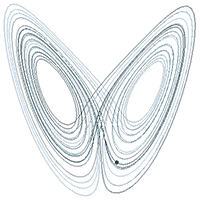
In the transactional world, I create mathematical models for companies to use as predictive tools for production and profit.
A mathematical model is a formula, system or algorithm used to demonstrate, predict or adjust systems. These mathematical representations can range from a simple equation to complex simulations, depending on the the protocol being modeled.

A model is a representation of an object, person, process or a system that can not be experienced directly.
These same mathematical skills also provide the tools and language needed to describe and analyze natural phenomena.

For example, epidemiologists use mathematical models to simulate the spread of diseases and evaluate the effectiveness of interventions such as vaccination programs. Economists also use mathematical models to analyze financial markets, forecast trends, and make investment decisions. Engineers use models to design and test new products, optimize processes, and solve complex problems in various industries.

In our laboratory of Thought Experiments and Imaginative Comparisons we employed mathematical modeling techniques to create an energy model.
We used this model as a template to design, and test 7 mental algorithms.
(Did you know that template and temple have the same root word?)
These algorithms are atomic – small in size, but powerful enough to change how we view the concept of mental energy, cognitive agilityCognitive Agility is a critical skill that influences vario… and our ability to direct and use it effectively.
